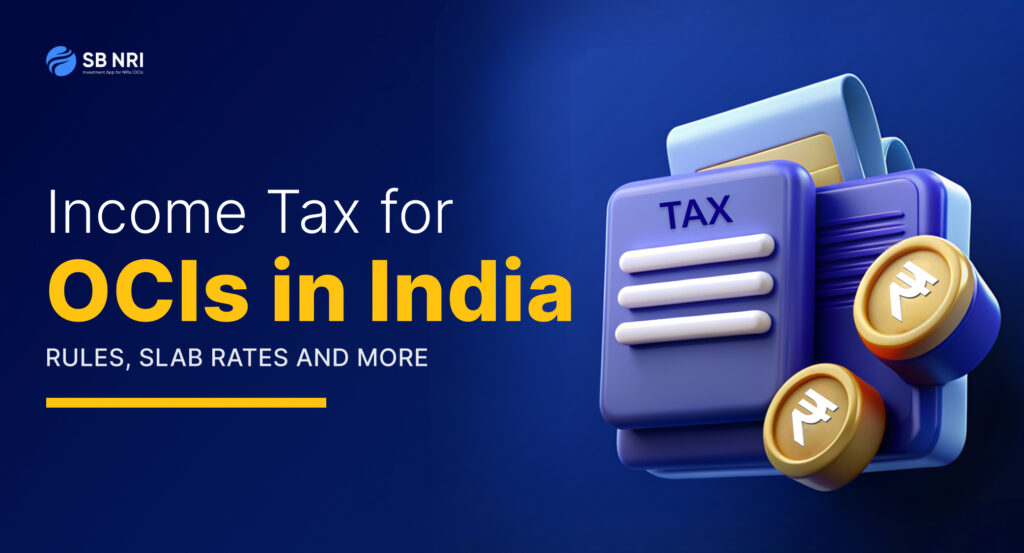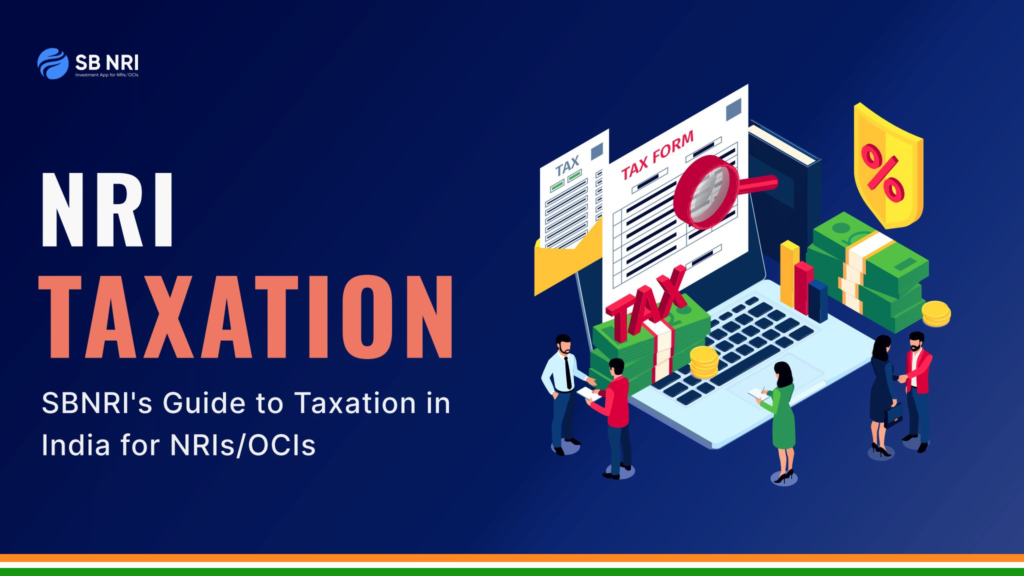
India has formulated specific tax rules for Non-Residential Indians (NRIs) and Overseas Citizens of India (OCIs). OCIs are individuals of Indian origin who hold foreign citizenship but have certain rights and freedoms that the citizens of India and NRIs enjoy. In this blog, we will discuss Income Tax for OCIs in India and shed light on key aspects such as residency status, taxable income, and tax filing procedures.
Eligibility for OCI Status
Given below are the eligibility criteria for OCI status:
- An individual who held Indian citizenship on or after 26 January 1950.
- Individuals from territories that became part of India after 15 August 1947.
- Descendants (children, grandchildren, or great-grandchildren) of Indian citizens.
- Minor children of the aforementioned individuals.
- Minor children with either both parents being Indian citizens or one parent being an Indian citizen.
Do OCIs have to Pay Taxes in India?
Any income earned by an OCI in India is subject to taxation in India. This includes income earned through working in India or by providing services in India. Moreover, such income may also be subjected to Tax Deducted at Source (TDS) in India.
Indian Income Tax Rules for OCIs
- The taxation implications are dependent upon your residency status and are governed by the Income Tax Rules.
- If an Overseas Citizen has stayed in India for more than 182 days during a financial year or for a total of 365 days within the preceding four financial years and at least 60 days in the previous financial year, they will be regarded as an Indian resident for tax purposes.
- In such cases, they are required to file an Income Tax Return (ITR) for the income earned both in India and abroad.
- It is crucial to file the ITR on time.
- Taxation is applicable to the individual’s global income, encompassing income earned in both India and abroad, while considering the provisions of the Double Tax Avoidance Agreement (DTAA).
- However, if the individual has spent fewer days in India than the aforementioned criteria, they are only obligated to pay tax and file ITR for income earned within India.
OCI Tax in India
The income tax rates applicable to OCIs in India are the same as those for Indian citizens. The tax rates are categorized into slabs based on income levels, with different tax rates applicable to each slab.
Given below is the table for the latest Income Tax Slabs rates:
NRI/OCI Income Tax Slab Rates for FY 2025-26
| Annual Income (INR) | Tax Rate (%) |
| Up to ₹4,00,000 | 0% |
| ₹4,00,001 – ₹8,50,000 | 5% |
| ₹8,50,001 – ₹12,50,000 | 10% |
| ₹12,50,001 – ₹16,50,000 | 15% |
| ₹16,50,001 – ₹20,00,000 | 20% |
| ₹20,00,001 – ₹25,00,000 | 25% |
| Above ₹25,00,000 | 30% |
Double Tax Avoidance Agreement (DTAA)
Double Taxation Avoidance Agreements (DTAAs) play a crucial role in preventing the double taxation of income earned by OCIs in India and their home countries. India has signed DTAAs with several countries to provide relief to taxpayers from paying tax on the same income in both countries.
Under the provisions of the DTAA, OCIs are required to obtain a Tax Residency Certificate (TRC) or Form 10F from the tax authorities in their country of residence. This certificate confirms their tax residency status and enables them to avail of tax exemptions or reduced tax rates on their income in India.
In cases where the income is taxable in India, taxpayers must fulfill their tax obligations and pay the relevant taxes. However, they can claim the applicable tax credit in their home country to avoid being taxed twice on the same income.
Do OCIs Need to File ITR in India?
Yes, OCIs (Overseas Citizens of India) who have taxable income in India are required to file their Income Tax Returns (ITR). The obligation to file ITR for OCIs in India is determined by their residency status and the amount of income earned in India. If an OCI’s income exceeds Rs 2,50,000, it becomes mandatory for them to file an income tax return. However, if the total income remains below the taxable threshold of Rs 2.5 lakh, there is no obligation to submit an ITR in India.
Calculate your TDS Refund with SBNRI’s TDS Refund Calculator
A TDS refund is the process of reclaiming the excess tax deducted at source by the payer if the actual tax liability of the taxpayer is lower than the TDS deducted. This situation typically arises when the income tax calculated on the total income is less than the TDS already deducted. To claim a TDS refund, taxpayers need to file an income tax return (ITR). The Income Tax Department processes the ITR and verifies the details. If the tax department finds that the TDS paid is more than the actual tax liability, the excess amount is refunded to the taxpayer.
You can easily find out how much tax refund you can get by calculating your TDS Refund from this TDS Refund Calculator.
Access SBNRI’s Exclusive NRI Taxation Guide

NRIs and OCIs can now access SBNRI’s exclusive NRI Taxation Guide covering in-depth information about DTAA, Gift Tax, Rental Income Tax, ITR Filing, Types of ITR Forms for NRIs, Capital Gain Tax, Income Tax, and more. The report will help you understand India taxation on mutual funds, other asset classes and how you can comply with the regulations.
Access NRI Taxation Guide here
Looking for NRI ITR Filing? Connect with SBNRI NRI Tax Expert CA Today!

At SBNRI, we have simplified ITR filing for NRIs/OCIs through a smooth digital journey. Be it Basic Filing, Advanced Filing (includes Capital Gain, etc.), or Premium Filing (Foreign Income), we can help you assess the right computation and lower your tax liability.
“We’ve helped over 500+ NRIs/OCIs file ITR returns and more than 25,000+ across other taxation services last financial year and we’d love to help you out too”
You can download SBNRI App or connect with NRI Tax Expert team directly via the button below.



